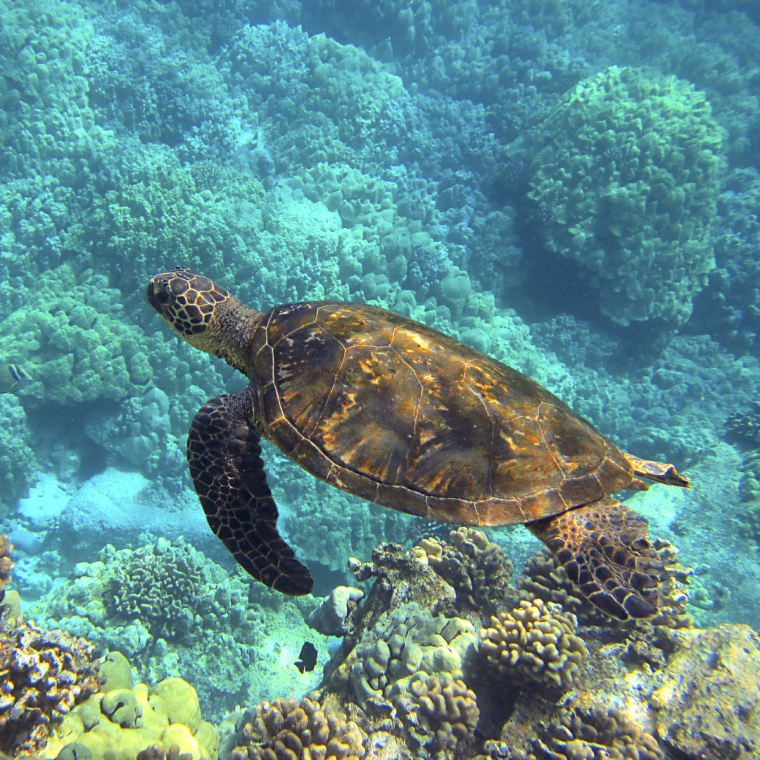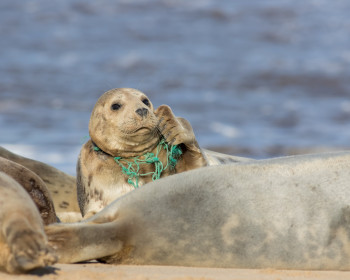GLA weighs in on conflict over marine protected area in Peru
Nick Fromherz, Latin American Program Director for the Global Law Alliance for Animals & the Environment and Adjunct Professor at Lewis & Clark Law School, talks with the Peruvian newspaper Ojo Público about conflicts between industrial fisheries, oil and gas activities, and civil and political actors over the creation of a new marine protected area in Peru.
Open gallery

In December 2022, the Conference of Parties of the Convention on Biological Diversity reached a historic agreement to protect 30% of the world’s land and 30% of the ocean by 2030. This benchmark, also known as “30 by 30,” presents golden opportunities for nature, wild animals, and people alike. But as with all ambitious initiatives, it comes with a set of challenges. One such challenge is avoiding the trap of “paper parks,” or protected areas that fail to live up to their billing.
A conflict in northern Peru highlights the danger of this approach. While civil society and political actors have been pushing for the creation of a marine protected area in Peru’s northern tropical sea for years, the offshore oil-and-gas and industrial-fishing sectors have had their eyes on the area as well. As the prospect of a new protected area in Peru comes closer to fruition, a pair of unsatisfactory “solutions” have emerged, ostensibly as ways to reconcile the competing interests.
The first approach is to create the protected area but allow industrial fishing and oil-and-gas development in parts of the reserve. The second approach is to scrap the idea in its entirety, based on the legal theory that existing hydrocarbon concessions preclude the government from doing anything that would prejudice oil-and-gas activities.
Weighing in on the debate, the Global Law Alliance for Animals and the Environment (GLA) questioned both approaches in anarticle published by Peruvian newspaper Ojo Público. Citing a Recommendation and a Resolution adopted by the IUCN in2016 and2020, respectively, GLA’s Nick Fromherz noted that both oil-and-gas activity and industrial fishing are incompatible with the concept of a marine protected area. Fromherz urged Peru to hew to the IUCN criteria, establish a proper marine protected area, and, only if necessary under national law, provide some sort of compensation for firms holding concessions in the area rather than allow the existence of such concessions to block the initiative altogether.
About
The Global Law Alliance is a collaboration of the top ranked Environmental Law Program at Lewis & Clark Law School and the world-renownedCenter for Animal Law Studies.
The Environmental, Natural Resources, and Energy Law Program
Lewis & Clark Law School’s Environmental, Natural Resources, and Energy Law program has occupied a top slot in the US News rankings for some 25 years. Founded in 1970, the same year of the first Earth Day and the launch of major federal environmental legislation, the program is celebrating its 50th year in 2020. The program offers over 45 courses in environmental law, including two clinics, the Global Law Alliance and a domestic litigation clinic, Earthrise Law Center, and houses the Green Energy Institute which works to further the transition to a 100% renewable energy grid. It offers two two certificates for JDs focusing on environmental issues and energy issues and also offers an LLM degree and a Master of Studies degree for non-lawyers (both of which can be completed on campus or online).
The Center for Animal Law Studies
The Center for Animal Law Studies (CALS) was founded in 2008 with a mission to educate the next generation of animal law advocates and advance animal protection through the law. With vision and bold risk-taking, CALS has since developed into a world-renowned animal law epicenter, with the most comprehensive animal law curriculum offered anywhere. In addition, CALS is the only program that offers two advanced legal degrees in animal law (an LLM degree anda Master of Studies degree for non-lawyers, both degrees are offered in person and online) and multiple animal law clinics and experiential learning opportunities. CALS’Alumni-in Action from more than 20 countries are advancing legal protections and making a difference in the lives of animals around the world.
More Environmental, Natural Resources, & Energy Law Stories
Environmental, Natural Resources, and Energy Law is located in Wood Hall on the Law Campus.
MSC: 51
email elaw@lclark.edu
voice 503-768-6649
Environmental, Natural Resources, and Energy Law
Lewis & Clark Law School
10101 S. Terwilliger Boulevard MSC 51
Portland OR 97219

